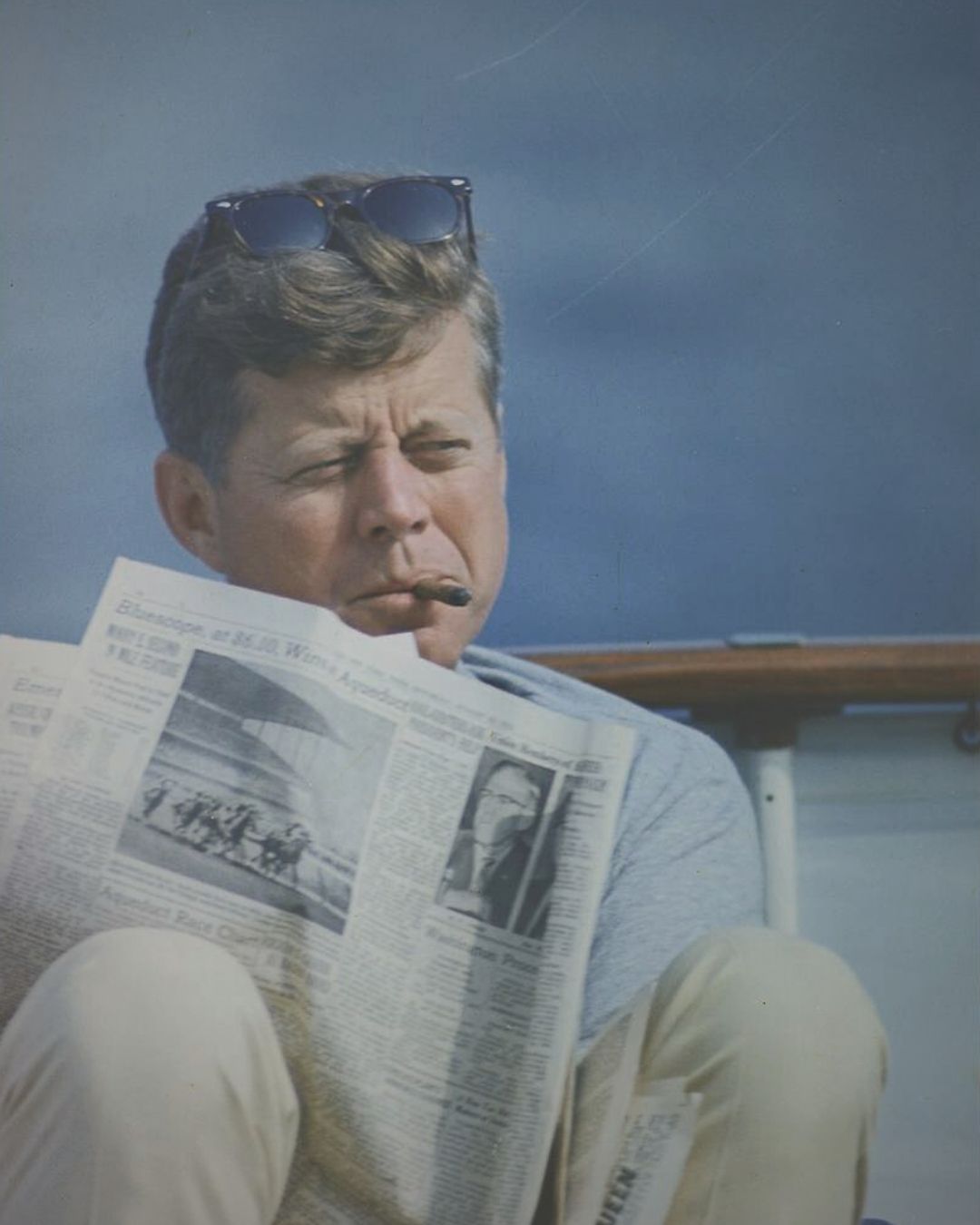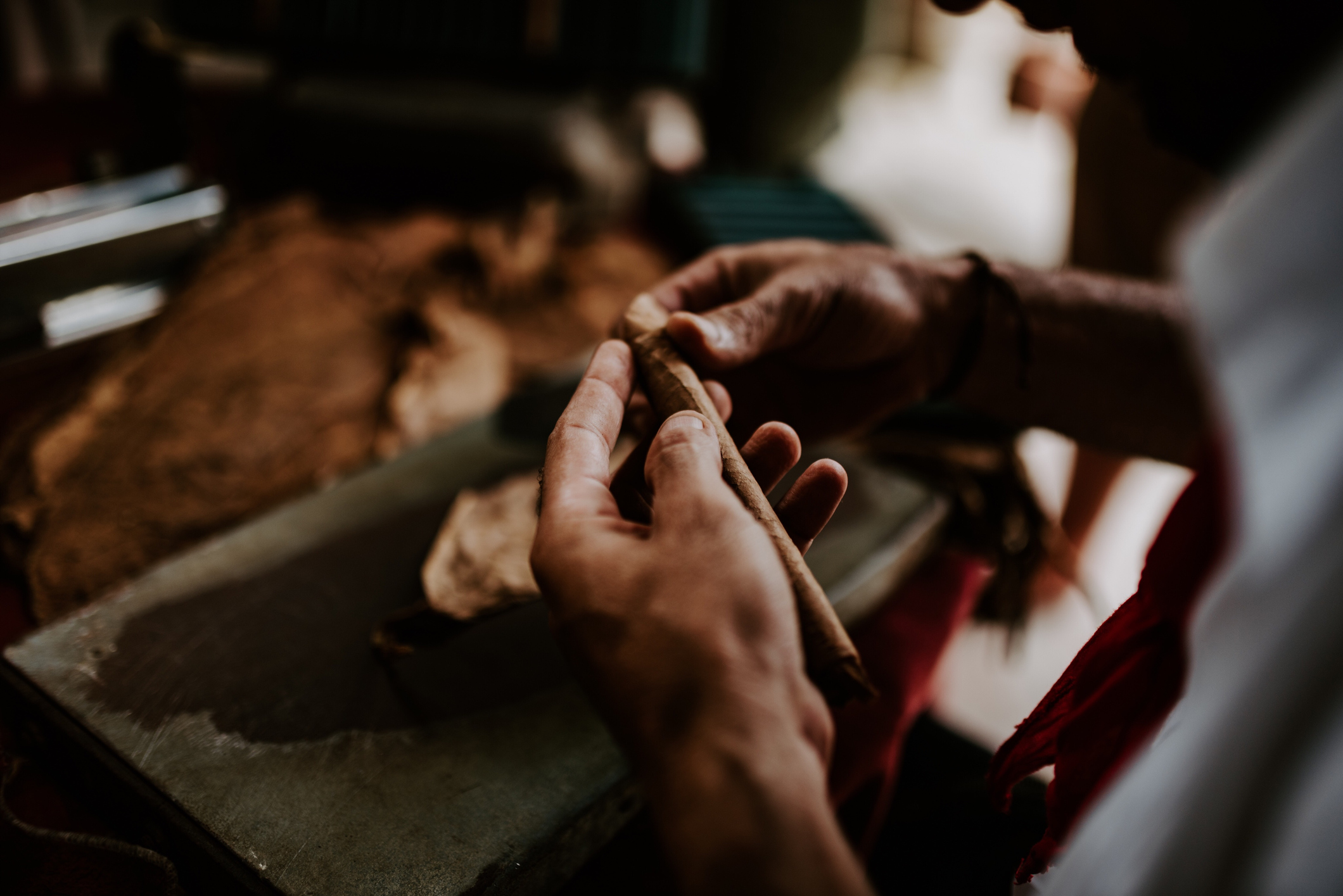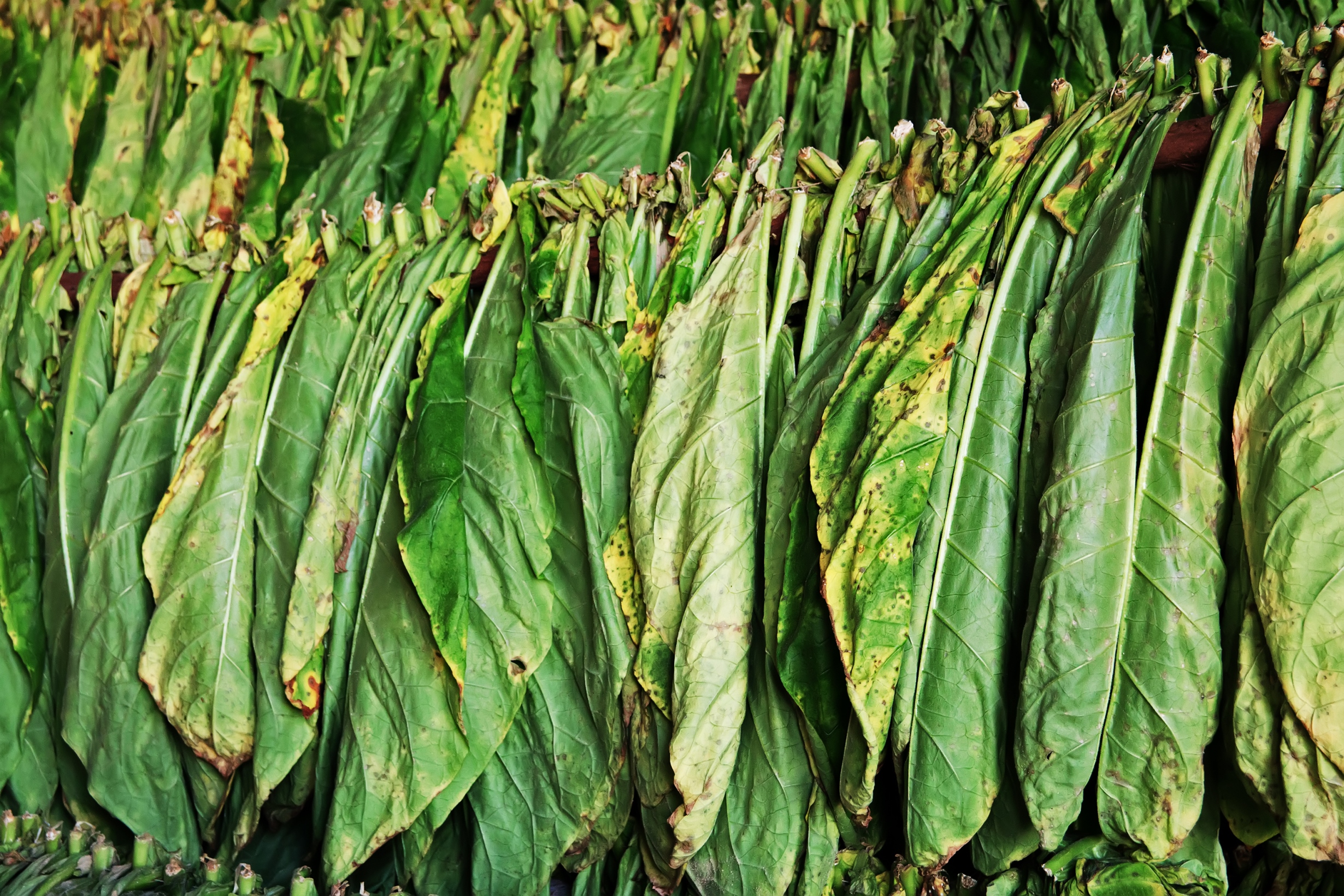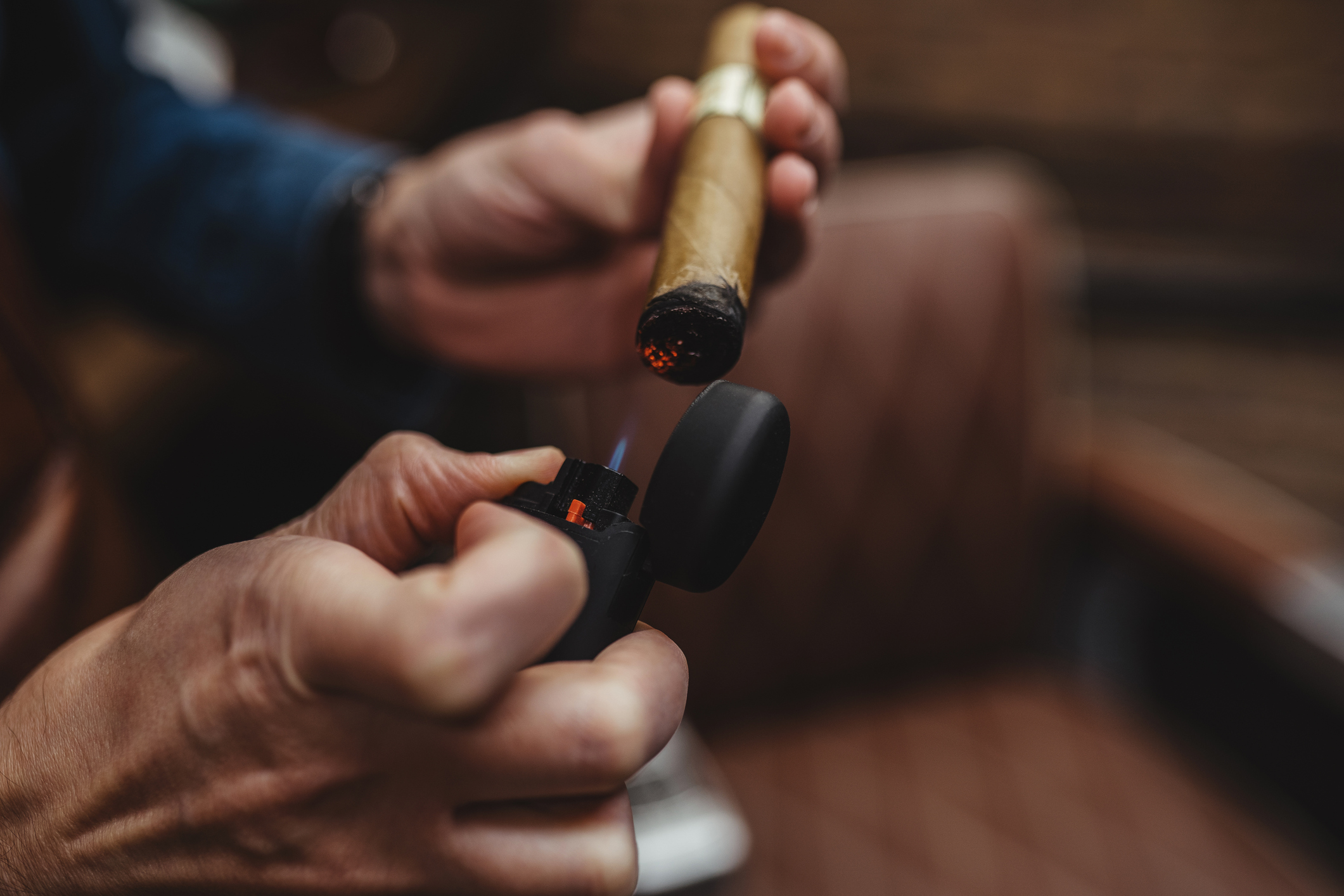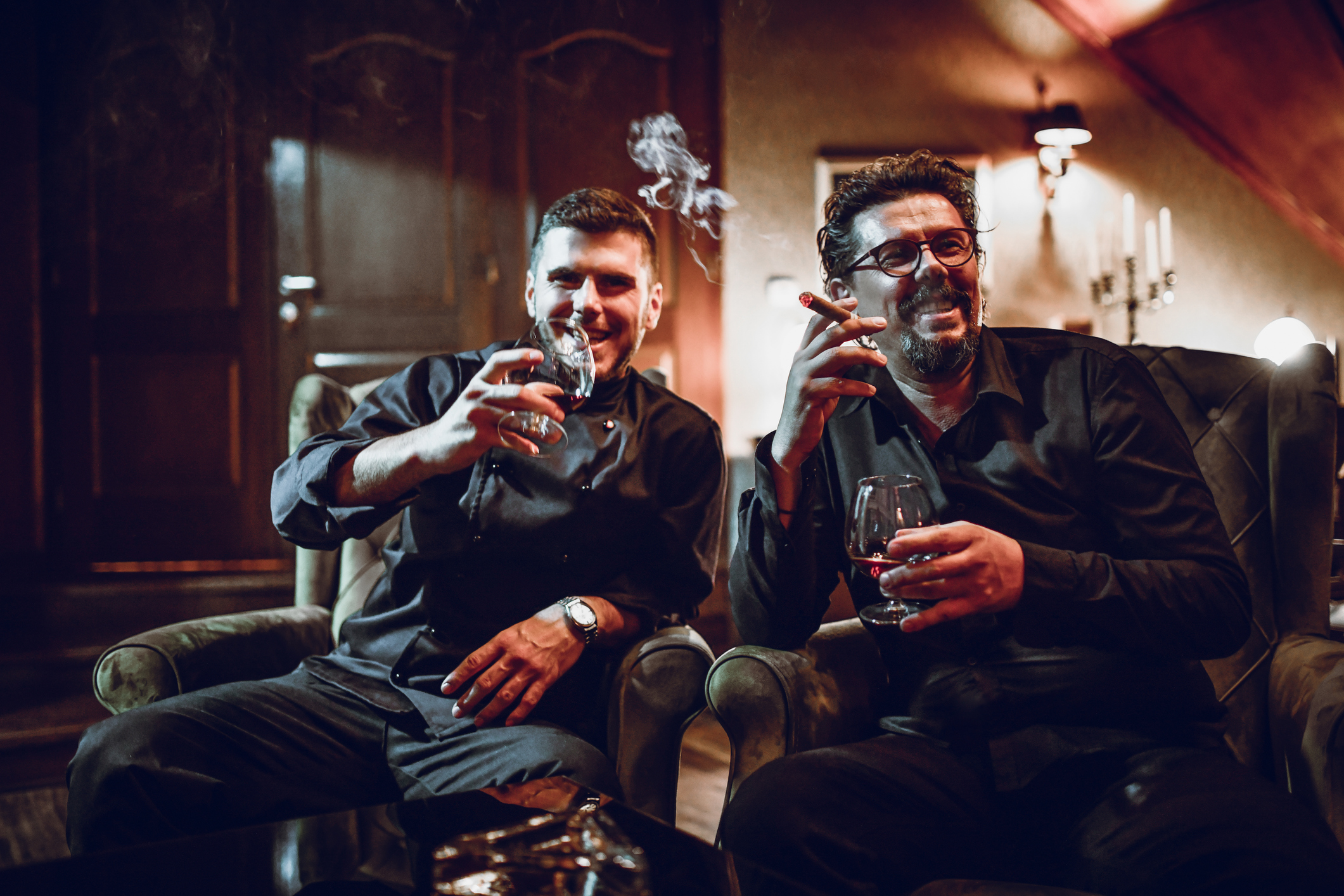From Founding Fathers to Wall Street: The Surprising Role of Cigars in American History
Picture this: George Washington puffing on a cigar as he contemplates the young nation’s future. Ulysses S. Grant reaching for his favorite smoke before a crucial Civil War decision. John F. Kennedy savoring a Cuban moments before signing the very embargo that would make such cigars legendary.
These aren’t romantic fabrications—they’re glimpses into a lesser-known thread woven throughout American history. Cigars haven’t just been present for our nation’s pivotal moments; they’ve been active participants in the conversations, negotiations, and celebrations that shaped America as we know it.
From the smoke-filled rooms where political deals were struck to the factory floors where immigrant dreams took root, cigars have been far more than luxury items. They’ve been symbols of success, tools of diplomacy, and quiet companions to some of our most consequential leaders.
When America Lit Up: The Early Years
Long before cigars became associated with power lunches and exclusive clubs, they were already making their mark on American soil. In the late 1700s and early 1800s, cigars represented something distinctly different from the pipes and snuff favored by European aristocracy—they were democratic, accessible, and uniquely American.
Thomas Jefferson, ever the connoisseur of fine things, was known to appreciate a good cigar, often enjoying them during his philosophical discussions at Monticello. But it wasn’t just the intellectual elite who embraced cigars. As trade routes expanded and tobacco cultivation flourished, cigars became part of the social fabric in taverns, meeting halls, and private homes across the growing nation.
The ritual of sharing cigars became a way of building trust and sealing agreements. In an era when a man’s word was his bond, the act of sitting down for a smoke created space for the kind of honest conversation that builds both business relationships and political alliances.
The Golden Age: When Cigars Built America
The 19th century marked cigars’ true golden age in America, a period when entire industries and communities grew around the art of cigar making. Cities like Tampa, Philadelphia, and New York became cigar capitals, their factories employing thousands and their products reaching every corner of the expanding nation.
This wasn’t just about tobacco—it was about the American Dream in action. Waves of immigrants, particularly from Cuba and Spain, brought centuries-old cigar-making traditions to American shores. They established factories, trained apprentices, and created entire neighborhoods centered around the craft of rolling premium cigars.
Tampa’s Ybor City stands as perhaps the most famous example, where Cuban and Spanish immigrants created a cigar empire that employed over 10,000 workers at its peak. These weren’t faceless factory operations—they were communities where master rollers passed down techniques through generations, where the rhythm of work was punctuated by “lectors” reading literature and news aloud to entertain workers.
The economic impact was staggering. By the 1890s, Americans were smoking over 4 billion cigars annually, supporting entire supply chains from tobacco farms to retail shops. Cigar bands became collectors’ items, cigar boxes were repurposed into everything from guitars to jewelry boxes, and the phrase “close, but no cigar” entered American vernacular from carnival games where cigars were prizes.
Icons and Smoke Rings: Famous Americans and Their Cigars
No discussion of cigars in American history would be complete without the larger-than-life figures who made them part of their legend. These weren’t casual smokers—for many American icons, cigars became as much a part of their identity as their achievements.
Ulysses S. Grant’s relationship with cigars is perhaps the most famous, though it began tragically. After his victory at Fort Donelson, grateful citizens sent him thousands of cigars. Previously a pipe smoker, Grant developed such an affinity for cigars that he reportedly smoked up to 20 per day.
Mark Twain, ever the quotable character, claimed he smoked 300 cigars per month and quipped, “If smoking is not allowed in heaven, I shall not go.” His wit and his cigars were equally legendary, both serving as tools for his sharp social commentary.
But perhaps no presidential cigar story is as dramatic as John F. Kennedy’s famous pre-embargo purchase. On February 6, 1962, knowing he was about to sign the Cuban trade embargo the next morning, JFK sent his press secretary, Pierre Salinger, on a midnight mission to buy every premium Cuban cigar he could find in Washington, D.C. Salinger returned with 1,200 H. Upmann Petit Coronas just hours before Kennedy made such purchases illegal for decades to come.
Winston Churchill, though British, became an American icon during World War II, and his cigars were as famous as his speeches. His daily cigar ritual—often smoking 8-10 per day—became part of his wartime image, the ever-present smoke creating an aura of calm determination during humanity’s darkest hours.
Cultural Smoke Signals: How Cigars Reflected America’s Changes
The story of cigars in America is really the story of America itself—periods of prosperity and prohibition, cultural shifts and social evolution, all reflected in how, when, and where Americans smoked.
The Prohibition era created an interesting paradox: while alcohol was banned, cigars flourished. Speakeasies often featured cigar-friendly atmospheres, and the ritual of cigar smoking provided a legal way to maintain the social traditions that alcohol prohibition had disrupted. Cigar lounges and smoking rooms became gathering places where business was conducted and relationships were built.
The mid-20th century brought cigars into the boardroom and the country club. The image of the successful American businessman often included a premium cigar—think of the Mad Men era, where cigars signaled sophistication, success, and insider status. Hollywood embraced this imagery, with stars like Groucho Marx making cigars part of their on-screen personas.
The 1960s and 70s saw a decline as health consciousness grew and social attitudes shifted. But rather than disappearing, cigars evolved. They became more selective, more premium, more about quality than quantity. The casual cigar smoker might have disappeared, but the connoisseur emerged.
Wall Street in the 1980s brought cigars roaring back as symbols of success and celebration. The image of traders and executives celebrating deals with premium cigars became iconic—Gordon Gekko’s cigars in “Wall Street” weren’t just props, they were cultural statements about power and achievement.
The Renaissance: Modern American Cigar Culture
The 1990s and 2000s witnessed something remarkable: a cigar renaissance that transformed how Americans viewed premium tobacco. This wasn’t about quantity—Americans were smoking fewer cigars than ever. But it was about quality, experience, and community in ways that harked back to cigars’ golden age.
Boutique cigar makers emerged, often immigrant artisans who brought old-world techniques to new-world innovation. Brands like Padron, Fuente, and others became household names among enthusiasts, creating cigars that rivaled anything Cuba had ever produced.
Cigar lounges evolved from smoky back rooms into sophisticated community spaces—places where professionals could network, friends could gather, and newcomers could learn from experienced aficionados. These weren’t just retail spaces; they were cultural institutions that preserved the social aspects of cigar enjoyment while adapting to modern sensibilities.
The internet age brought cigar education and community to new levels. Enthusiasts could learn about tobacco cultivation, aging processes, and blending techniques. Online forums and reviews democratized cigar knowledge, while premium retailers could reach customers anywhere in the country.
Today’s American cigar culture represents the best of both worlds: the craftsmanship and tradition of cigar making’s golden age combined with modern quality standards, health awareness, and social consciousness. It’s about savoring exceptional experiences rather than casual consumption—quality over quantity, education over ignorance, community over isolation.
Where Tradition Meets Tomorrow
This rich history continues to unfold today in places like Kapnós, where the legacy of American cigar culture lives on. When you select a premium cigar from our collection, you’re participating in a tradition that connects you to centuries of American history—from the founding fathers who shaped our nation to the modern artisans who continue to perfect their craft.
At Kapnós, we understand that cigars aren’t just products—they’re connections to history, catalysts for conversation, and markers of life’s meaningful moments. Whether you’re celebrating a personal milestone, building a business relationship, or simply taking time to reflect and recharge, you’re part of a story that began with America itself.
The next time you visit our lounge or browse our online collection, remember: you’re not just choosing a cigar. You’re choosing to be part of an ongoing American story, one that began in colonial meeting halls and continues in modern cigar lounges like ours.
Because some traditions aren’t just worth preserving—they’re worth celebrating, one perfect cigar at a time.
